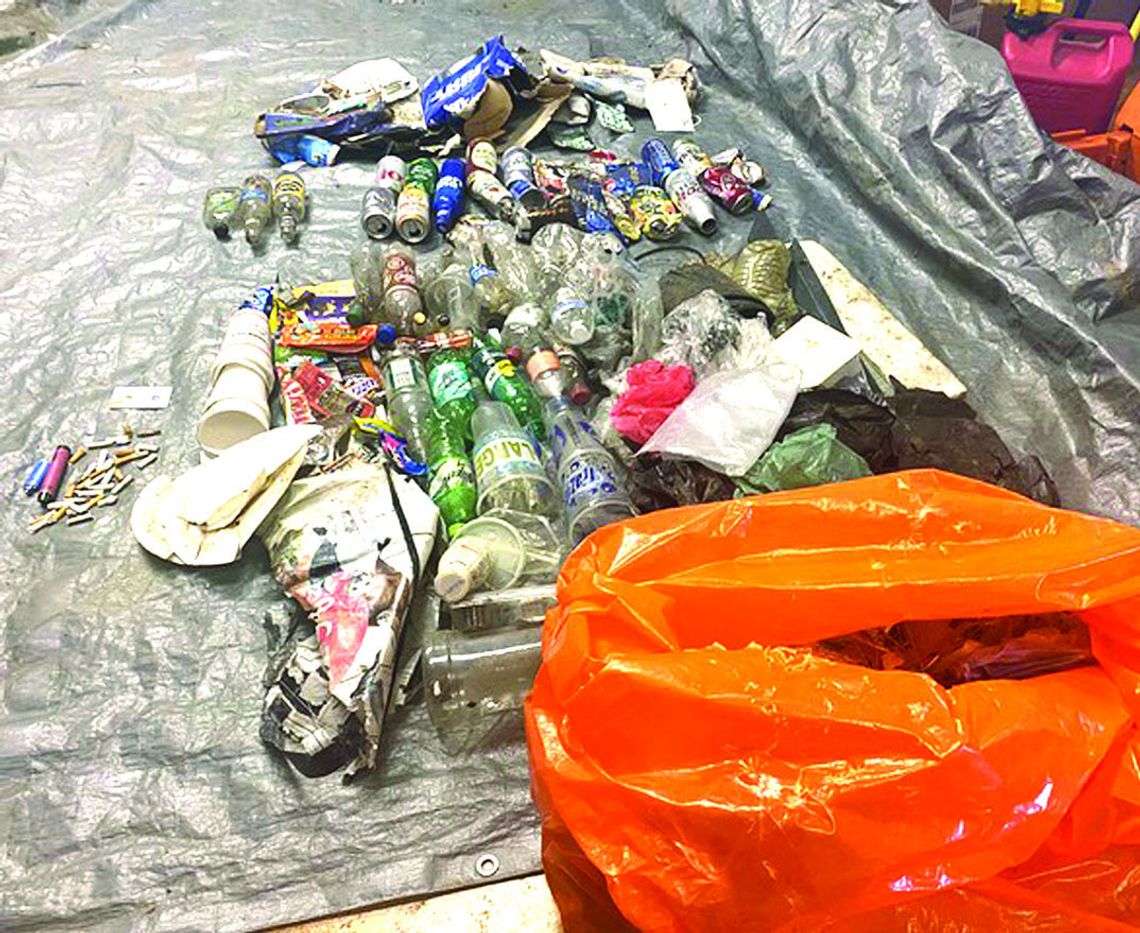Editorial
Editor’s note: The following commentary was submitted by Melody Tennant, chair of the Rockbridge Conservation Board’s waste prevention committee, and we thought we would share this with you. We couldn’t have said it better ourselves.
A challenge that began, modestly enough, in Western Australia in 2011, to encourage people to reduce single-use plastic, drew 40 participants. Since then, Plastic Free July has swelled to a global movement in which 140 million people from 190 countries are now taking part. We call on Rockbridge area residents to take notice and take part.
Local folks are already doing plenty to help clean up our environment. In March, 440 people participated in the annual Community Cleanup sponsored by Rockbridge Conservation. They collected an estimated 10 tons of litter from our county roads. Congratulations to everyone who cared enough to do this valued dirty work!
Whether or not you participated, you might be interested in what was collected. Shown in the photograph accompanying this article, for example, are the contents of one of the 12 bags of litter picked up on a two-mile stretch of Va. 39 from the Virginia Horse Center heading towards Rockbridge Baths.
At least 60 percent of the bag consisted of items made of plastic: soda bottles, drinking cups, candy wrappers, bags, foam plates and cigarette butts (98 percent of cigarette filters are plastic). Another 30 percent were empty beer and soda cans. About 5 percent consisted of paper waste from lottery tickets, beer cartons, cigarette packs and food wrappers, and there were also several empty glass bottles of hard lemonade and liquor.
Another volunteer picked up litter at Brewbaker Field, Kids Placyce, Wallace Street, and the area around the Maury River Middle School track. She reported that 80 percent of the litter was plastic, 5 percent aluminum and the rest paper and other trash.
Although we are a relatively small community, our county cleanup is part of a global movement to reduce the production, use and discarding of plastics. We, like the rest of the world, are swimming in plastic. In fact, more plastic has been produced in the last 10 years than in the entire 20th century. We have sophisticated landfills and refuse collection systems, so our plastics are buried where we usually don’t see it. But it’s there, and it’s never going away.
Why have we become increasingly concerned about plastics? First it was about pollution – river, lake and ocean shores strewn with discarded plastics of all kinds. Then it was the realization that since 99 percent of plastics are created from fossil fuels, the production, distribution, consumption and discarding of plastics amounts to the biggest oil spill in our environment yet. Now, the health risks of plastics have added to our concern.
When plastics break down, they become microplastics – about the size of sesame seeds. These microplastics are found in rice, sugar, seafood, vegetables, drinking water, rain and the air we breathe. Polyester clothes and rugs shed minute plastic fibers. Then there are nano plastics that are the size of a virus. Multiple studies have shown that these smallest plastics can pass from the gut into the blood, and from there into the brain, placenta, liver, and other organs. These plastics that have been found to disrupt the gut microbiome leading to inflammation, lower sperm quality and testosterone levels and negatively affect learning and memory. Some of the many chemicals that go into the production of plastics to give them their different qualities of hardness, softness and flexibility are known endocrine disruptors that have been linked to developmental disabilities in children and problems with reproductive systems and metabolism in adults, causing reproductive disorders, cancer, diabetes, obesity, heart disease and other serious health conditions.
Are you interested in seeing how much plastic you can avoid using during Plastic Free July? Go to plasticfreejuly.org to get some ideas and maybe even sign up to take the Plastic Free July challenge. You can also contact Rockbridge Conservation at info@rockbridgeconservation. org for support, questions and actions.
It is not easy. Plastic became ubiquitous for a reason – it’s cheap and has countless applications. But if you value your health, the health of your loved ones and the health of our community, it is worth the effort to address the unintended consequences of a world littered with plastic.
Let’s go for it, Lexington, Buena Vista, Brownsburg, Fairfield, Glasgow, Goshen, Natural Bridge and all of our other neighbors! Let’s reduce our own use of plastic during Plastic Free July.
.jpg)



